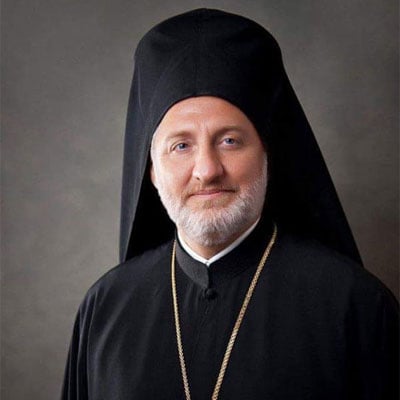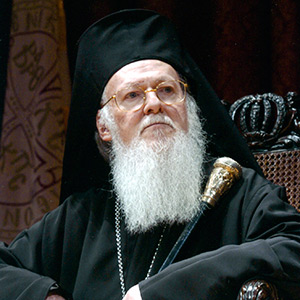Nota Bene!
*Soul Saturdays 2/22, 2/29, and 3/7. Orthros 9:00 am; Divine Liturgy 10:00 am. Please submit your names to Fr. Seraphim. The lists should be first names only, and those should be the baptismal names of the individuals.
*Forgiveness Vespers tonight at 6:00 pm. The first step in our repentance is forgiveness. Please make it a priority to come and ask forgiveness of all those whom we've offended, and to give our forgiveness readily to everyone who asks it! If we don't forgive others, God will not forgive us. If we can't let go of our hurts, they will drag us into the lake of fire on the Last Day. This is no laughing matter. We should approach it with all seriousness and true contrition. Come even if you don't think you've offended anyone, for often times we don't even realize that we have transgressed.
*Lenten Weekday Schedule:
Every Monday Evening: Great Compline at 6:00 pm.
Every Wednesday Evening: 9th Hour at 5:30 pm, Presanctified Liturgy 6:00 pm.
Most Friday Evenings: Salutations to the Theotokos at 6:00 pm.
*Daylight Savings next weekend!
*Invocation at the State House of Representatives: Fr. Seraphim will give the morning invocation at the State House of Representatives on Friday, March 6th.
*Please Welcome Fr. Dass and guests from Notre Dame on Wednesday, March 6th at the Presanctified Liturgy.
*Blood Drive: Monday, March 9th from 1:00pm-7:00pm. We will need help setting up around noon-ish and again to pack up at 7:00pm. Thank you in advance to everyone who helps with this endeavor!
*Pan-Orthodox Vespers: Sunday, March 8th at St. Anna's Greek Orthodox Church in Sandy (at their new location) at 6:00 pm with a potluck to follow. All are invited. Fr. Seraphim is going.
*Fr. Anthony Savas of St. Anna's will be the guest celebrant at the Presanctified Liturgy on March 11th. Please give him a warm welcome. Fr. Seraphim, in turn, will be the guest celebrant at the Presanctified Liturgy at St. Anna's on that same day.
*Lenten Suppers: The sign up sheet for the suppers after the Presanctified Liturgies is on the bulletin board downstairs.
*Spring General Assembly will be on Sunday, March 15th.
*Easter Bread: Please pick up an order form in the narthex or print it from the e-mail bulletin.
*Lenten Lunch at the Methodist Church: Wednesday, March 18th. Fr. Seraphim will make the soup that day and offer the lenten talk at the luncheon. We will need volunteers to make lenten cupcakes and to help us set up around 10:30 or 11:00-ish (we will load cars at our church, and then proceed to the Methodist church to set up there).
*Bible Study will resume after Bright Week.







 Beloved Brothers and Sisters in Christ,
Today we commence our journey of the Great Lent that leads us inexorably to the Holy Passion of the Lord and the Pascha of unending joy. It is a time of determination and concentration, one in which we are encouraged to abstain from certain foods and drink, to practice more active charity and philanthropy, and to look within at the values and principles by which we live our lives.
Beloved Brothers and Sisters in Christ,
Today we commence our journey of the Great Lent that leads us inexorably to the Holy Passion of the Lord and the Pascha of unending joy. It is a time of determination and concentration, one in which we are encouraged to abstain from certain foods and drink, to practice more active charity and philanthropy, and to look within at the values and principles by which we live our lives.
 NEW YORK – His Eminence Archbishop Elpidophoros of America expressed his delight and pride that His All-Holiness Ecumenical Patriarch Bartholomew will give the University of Notre Dame’s 175th commencement address on May 17, 2020, at the conclusion of his Apostolic Visit to the United States.
NEW YORK – His Eminence Archbishop Elpidophoros of America expressed his delight and pride that His All-Holiness Ecumenical Patriarch Bartholomew will give the University of Notre Dame’s 175th commencement address on May 17, 2020, at the conclusion of his Apostolic Visit to the United States.